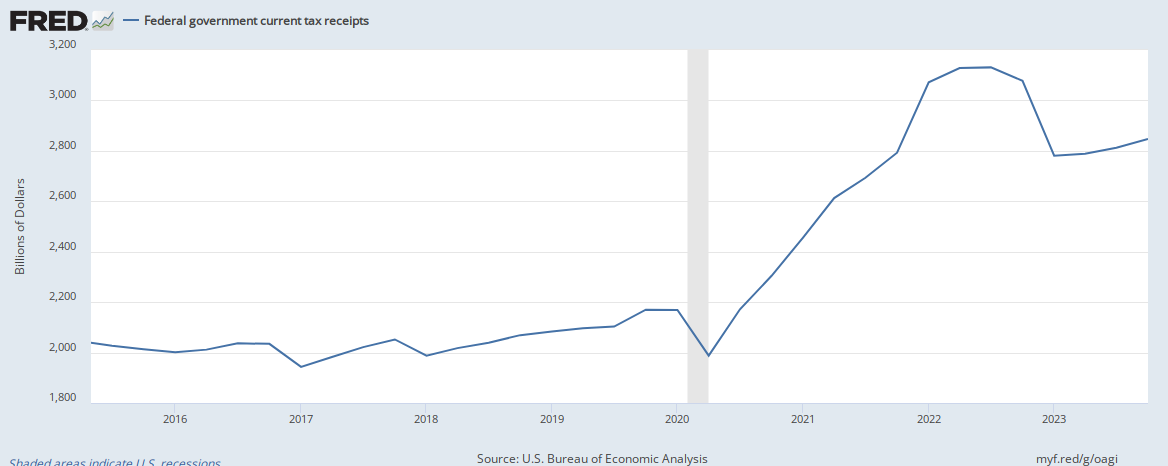jonny5
DP Veteran
- Joined
- Mar 4, 2012
- Messages
- 27,581
- Reaction score
- 4,664
- Location
- Republic of Florida
- Gender
- Male
- Political Leaning
- Libertarian
Taxes are up 2% or 51bn over same time last year, so no wonder the deficit keeps increasing.
Spending is up 9% or 255bn over same period last year.
-132bn mandatory social spending
-53bn DOD and VA
-37bn additional interest on the debt
https://www.cbo.gov/system/files/2019-06/55329-MBR.pdf
6 months since Democrats took over the House, and a couple month till FY2020, and still no budget, no approprations. The House budget committee has put out a framework to increase spending, thats it. Oh, also a hearing on budgetary effects of climate change 50 years from now.
Amounts withheld from workers’ paychecks rose by $30 billion (or 2 percent). That
change largely reflects increases in wages and salaries
Customs duties increased by $19 billion (or 78 percent), primarily because of new tariffs
imposed by the Administration during the past year.
Spending is up 9% or 255bn over same period last year.
-132bn mandatory social spending
-53bn DOD and VA
-37bn additional interest on the debt
https://www.cbo.gov/system/files/2019-06/55329-MBR.pdf
6 months since Democrats took over the House, and a couple month till FY2020, and still no budget, no approprations. The House budget committee has put out a framework to increase spending, thats it. Oh, also a hearing on budgetary effects of climate change 50 years from now.


